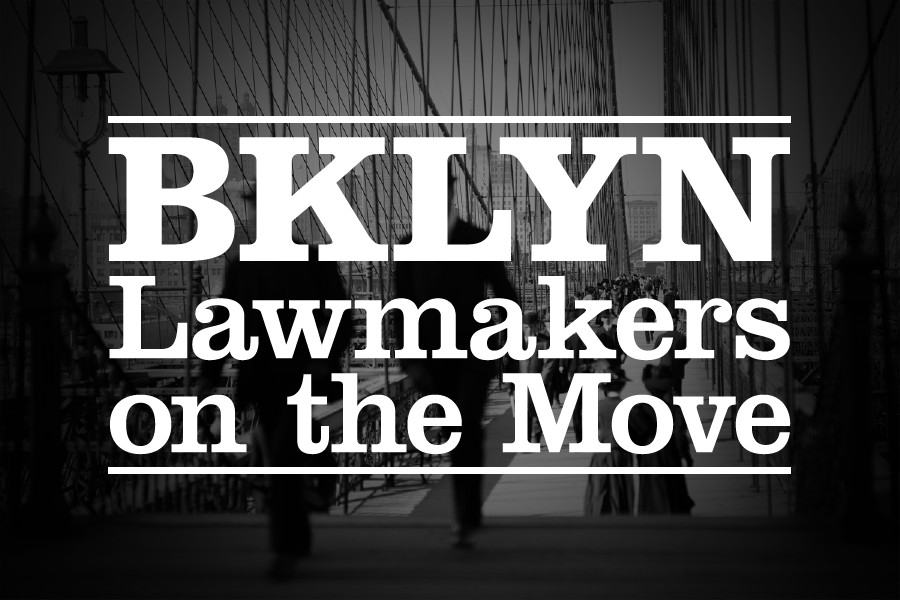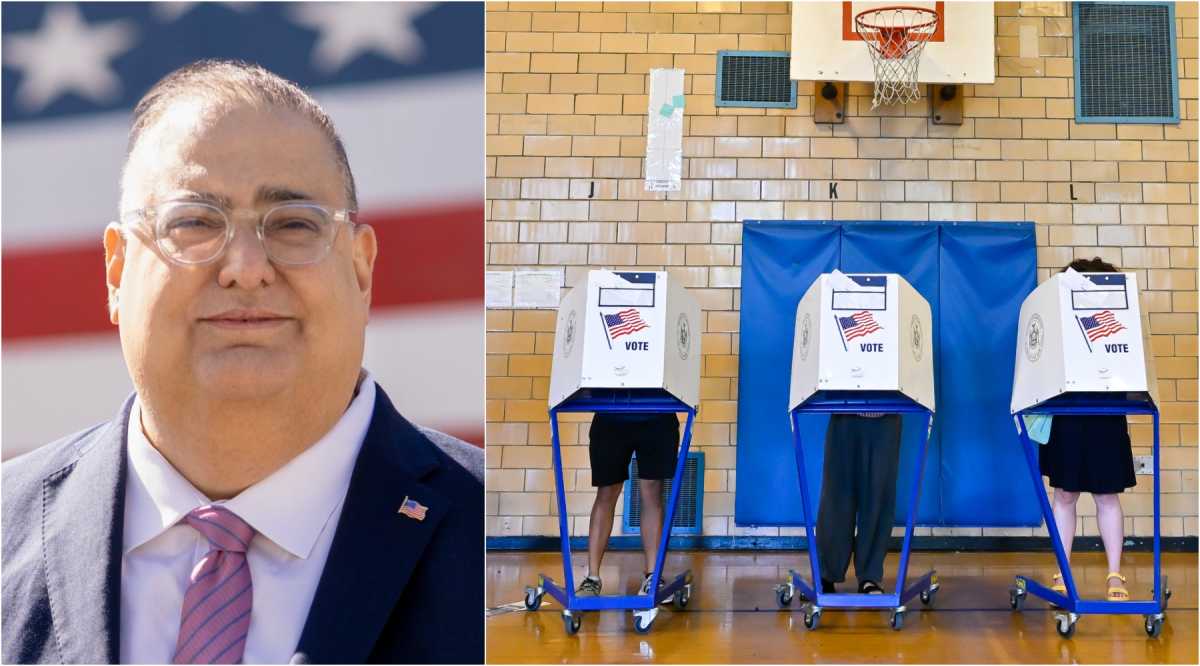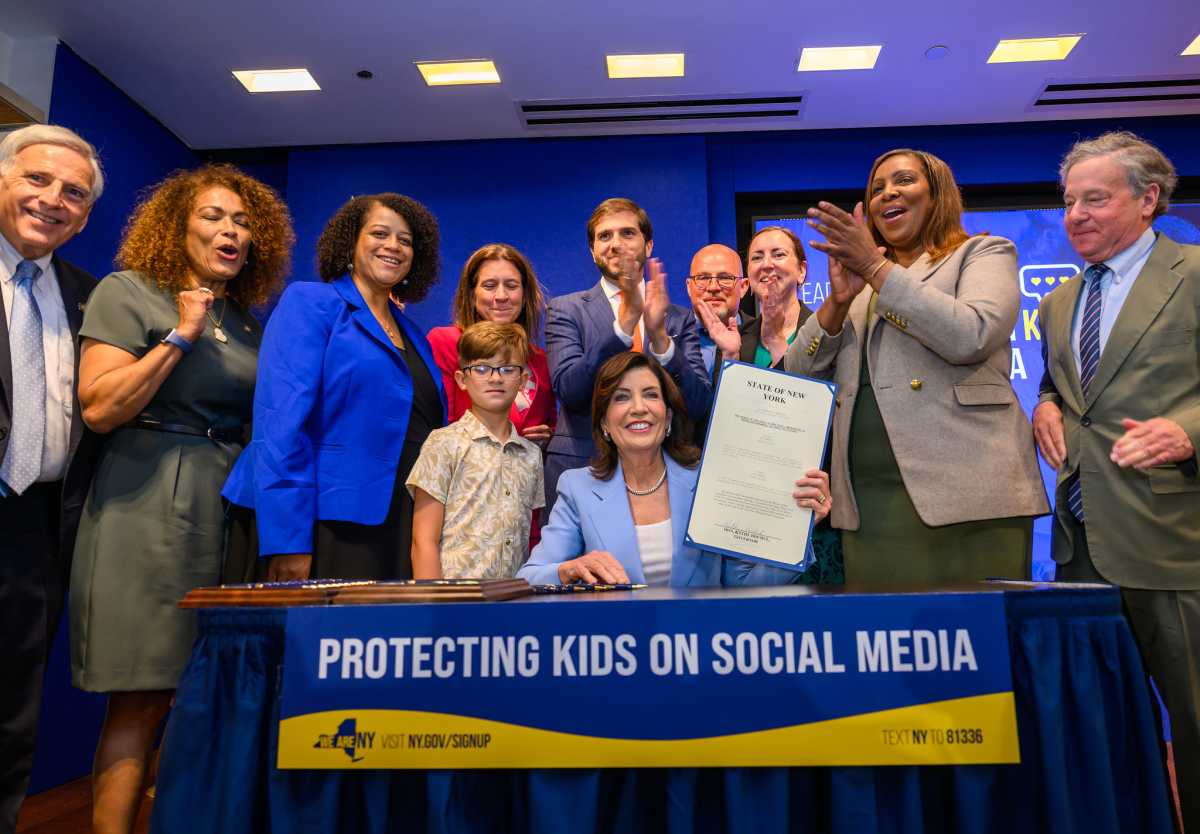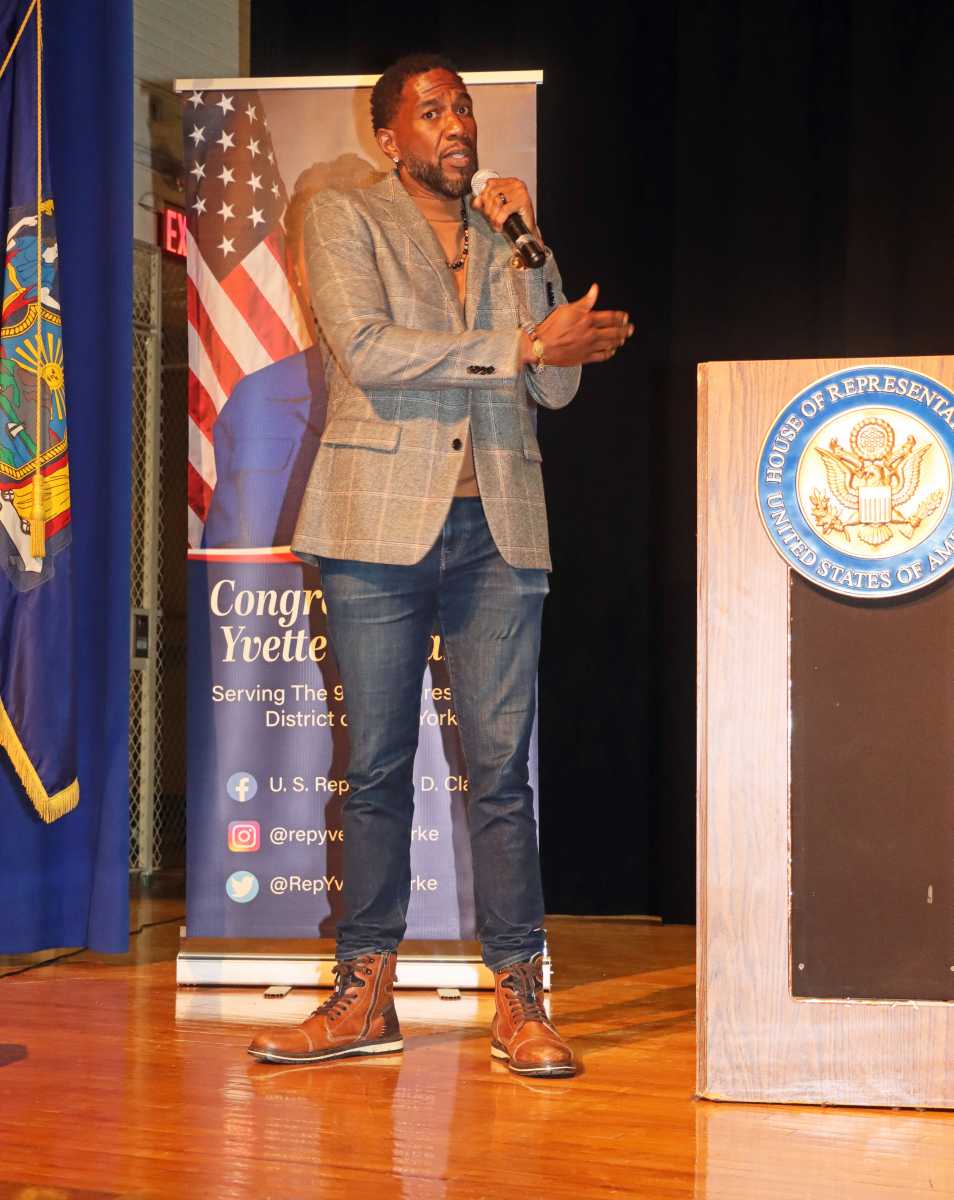Rose Introduces Bill to Ban Corporate PACs
Congressman Max Rose (D-South Brooklyn, Staten Island) introduced the Ban Corporate PACs Act on Friday, which would ban corporate political action committees (PACs). PACs have had a heavy influence on the course of most elections in the U.S.
In the 2018 election cycle, 1,732 corporate PACs gave more than $400 million to federal campaigns—more than any other type of PAC—including contributing more than $185 million directly to candidates. Corporate PACs are often established by corporations to influence policy, with corporations able to fund the creation and operation of the PAC and solicit contributions. In many cases, corporate PACs are controlled by corporate lobbyists and expressly make contributions to forward business interests.

“Corporate PACs flood this city with contributions, but it’s not the American people’s priorities they have in mind—it’s their own bottom lines,” Rose said. “That’s wrong and at the root of Washington corruption. That’s why we must send a clear, unmistakable message to the American people that we are here to fight for them and only them—not the special interests and corporate PACs.”
Rose’s Ban Corporate PACs Act would amend the Federal Election Campaign Act of 1971 to prohibit for-profit corporations from being allowed to sponsor, operate, or fund a separate segregated fund, commonly known as a PAC and dissolves existing corporate PACs one year after its enactment.
Lentol Introduces Bill to Establish Statewide Mental Health Community Clinics
Assembly Member Joseph R. Lentol (D-Greenpoint, Williamsburg, Fort Greene) introduced a bill Friday that would establish integrated mental health community clinics across New York State. These clinics will focus on issues such as eating disorders, substance abuse, suicide prevention, anger management, depression, and other behavioral issues.

“While preventative and proactive care of physical health is important, the same must be said for mental health,” said Lentol. “New York State continues to fail individuals and families who suffer from brain disease that manifest as symptoms of mental illness. No matter the health care discussion, mental health always gets left behind.”
Mental health issues can lead to strained relationships, financial hardships, and horrific public tragedies. The majority of mental health issues can be treated through a combination of therapy and medication. Lentol’s bill will mandate the New York State Department of Health to create statewide integrated mental health community clinics equipped with the right tools and services in order to expand access to mental health treatment services so those who need it most can do so in their own community. For all health care matters, convenience and accessibility mean better care netting better outcomes.
“We must treat mental health as comprehensively as we do physical health. Expanding access to mental health services is not only the right thing to do, but it is a public health emergency,” added Lentol. “New York State must provide comprehensive and accessible means of mental health treatment for those who need it.”
DOB Announces Sustainable Roof Requirements For New Buildings Go Into Effect
The New York City Department of Buildings (DOB) announced last week that Local Law 92 and Local Law 94 of 2019 are now in effect. This package of legislation requires all new buildings and existing buildings undergoing certain major roof renovations are 100 percent covered by a solar photovoltaic system, a green roof system, or a combination of the two. These laws are components of the Climate Mobilization Act (CMA), which was passed by the City Council in April 2019, as part of the Mayor’s New York City Green New Deal and OneNYC 2050 plan.

“The implementation of the law expanding green roofs is a win for our environment, our economy and our communities. At a time when national policy seems to turn its back on our planet, it is up to cities like New York to lead the fight against climate change. To do that, we have to adopt policies that take advantage of our unique, untapped assets,” said Council Member Rafael Espinal (D- Bed-Stuy, Brownsville, Bushwick, Crown Heights, Cypress Hills, East New York). “I am proud to have been a part of a team of activists and communities who are working to change this concrete jungle into a green oasis.”
Starting last week, all new application filings for new building projects and alteration projects that include vertical and horizontal enlargement or replacement of the entire roof, and must include a form certifying their compliance with the law prior to plan approval. Detailed requirements for compliance with the new laws can be found in the associated Service Notice and Buildings Bulletin 2019-010.
Building emissions currently account for about 70 percent of greenhouse gas emissions in New York City. These new laws represent a significant step forward in realizing Mayor de Blasio’s ambitious goal of New York City becoming carbon neutral by 2050, and are a major component of the City’s efforts to mitigate climate change and reduce urban flooding. The laws will also improve the health of New York Harbor and its tributaries.
Sen. Montgomery’s Adoptee Rights Bill Signed Into Law
Governor Cuomo signed the historic Clean Bill of Adoptee Rights (S3419 – Montgomery /A5494 – Weprin) into law to restore unrestricted access to original birth certificates for all adult adoptees.

“I am so proud to have been the Senate sponsor of the Clean Bill of Adoptee Rights. I thank Governor Cuomo for signing this historic piece of legislation and I thank my colleague, Assemblyman David Weprin for his unwavering commitment to seeing it through,” said State Sen. Velmanette Montgomery (D-Fort Greene, Boerum Hill, Red Hook, Bed-Stuy, Sunset Park, Gowanus, Park Slope), who introduced the bill. “This has been long overdue. We owe our success to the advocacy of thousands of adult adoptees who have fought tirelessly on this issue for over 20 years. The level of support I received for this legislation from adult adoptees all across the state and the nation was astounding. It is important that they have the right to seek answers about their health, their family history and their heritage.”
Adoptees have been advocating for equal rights legislation across the country for more than 50 years. This will be the first time adult adoptees have such access since these records were sealed in 1936.










